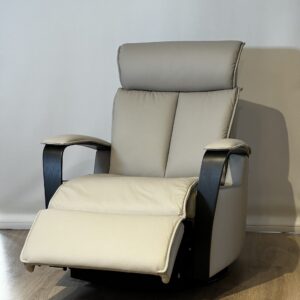Sleep is a fundamental human need, and when it is in short supply, it can have a profound impact on our physical and mental well-being. Sleep deprivation can result from various factors, such as a demanding work schedule, stress, or lifestyle choice.
This can lead to a range of negative consequences, including:
- Reduced cognitive function and impaired memory
- Increased stress and irritability
- Weakened immune system
- Weight gain and metabolism issues
- Increased risk of chronic conditions like diabetes and heart disease
- Fatigue and reduced productivity
- Mood disturbances, such as depression and anxiety
Addressing sleep deprivation is vital for overall health and well-being. The good news is that there are several home therapies that can help you get the restorative sleep you need.
Home Therapies to Combat Sleep Deprivation
Establish a Consistent Sleep Schedule: One of the most effective ways to combat sleep deprivation is to establish a regular sleep schedule. Try to go to bed and wake up at the same time every day, even on weekends. This helps regulate your body’s internal clock, making it easier to fall asleep and wake up at the desired times.
Create a Relaxing Bedtime Routine: Develop a relaxing bedtime routine that signals to your body that it is time to wind down. This could include activities like reading a book, taking a warm bath, practicing gentle yoga, or listening to calming music. Avoid engaging in stimulating activities like watching intense TV shows or working on your computer right before bed.
Optimize Your Sleep Environment: Your sleep environment plays a crucial role in the quality of your sleep. Ensure your bedroom is cool, dark, and quiet. Consider investing in a comfortable mattress and pillows. Blackout curtains can help eliminate unwanted light, and white noise machines or earplugs can block out disruptive sounds.
Limit Exposure to Screens: The blue light emitted by screens, such as phones, tablets, and computers, can interfere with your body’s production of melatonin, a hormone that regulates sleep. Aim to avoid screens at least an hour before bedtime to help your body prepare for sleep.
Be Mindful of Your Diet: What you eat and drink can significantly affect your sleep. Avoid heavy or spicy meals close to bedtime, as they can cause discomfort and disrupt sleep. Caffeine and alcohol should also be consumed in moderation, especially in the hours leading up to bedtime. Instead, opt for a light, soothing snack, like a small serving of warm milk or herbal tea.
Stay Active: Regular physical activity can improve sleep quality, but it is crucial to time your exercise correctly. Engaging in vigorous workouts close to bedtime may be counterproductive, as it can increase alertness. Aim to complete your exercise at least a few hours before bedtime. Gentle activities like walking or stretching in the evening can promote relaxation.
Manage Stress: Stress and anxiety are common culprits behind sleep deprivation. Engage in stress-reduction techniques such as deep breathing exercises, meditation, or progressive muscle relaxation. These practices can help calm your mind and prepare you for a restful night’s sleep.
Limit Naps: While short power naps can be rejuvenating, excessive daytime napping can interfere with nighttime sleep. If you find yourself needing to nap frequently during the day, try to keep these naps to 20-30 minutes and avoid napping too close to bedtime.
Herbal Remedies: Certain herbal remedies, such as valerian root, chamomile, and lavender, are known for their calming and sleep-inducing properties. You can brew these herbs into a soothing tea or use essential oils in a diffuser to create a relaxing atmosphere in your bedroom.
Cognitive Behavioral Therapy (CBT): If your sleep deprivation is related to persistent insomnia or other sleep disorders, consider seeking help from a qualified therapist who specializes in Cognitive Behavioral Therapy for Insomnia (CBT-I). CBT-I is a structured program that can address the underlying causes of sleep issues and provide effective strategies to improve sleep.
Limit Liquid Intake Before Bed: To avoid waking up during the night for bathroom trips, reduce your liquid intake in the hours leading up to bedtime. Staying hydrated is essential, but try to hydrate earlier in the day and taper off as bedtime approaches.
Maintain a Comfortable Room Temperature: Room temperature can greatly impact your sleep quality. Keep your bedroom at a comfortable temperature, typically between 60-67 degrees Fahrenheit (15-20 degrees Celsius). A cooler room can promote better sleep.
While these practices are effective, it is essential to remember that the efficacy of these home therapies may vary from person to person. If you continue to experience persistent sleep deprivation despite trying these methods, it may be advisable to consult a healthcare professional or a sleep specialist for further evaluation and guidance.
With nearly three-quarters of a century, Restonic has firmly established itself as a distinguished leader in the bedding industry. Our unwavering commitment to research and development of the highest quality sleep products has placed us among the leading mattresses in UAE. Stay updated with our latest products and events by subscribing to our newsletter.













